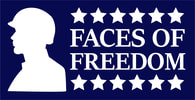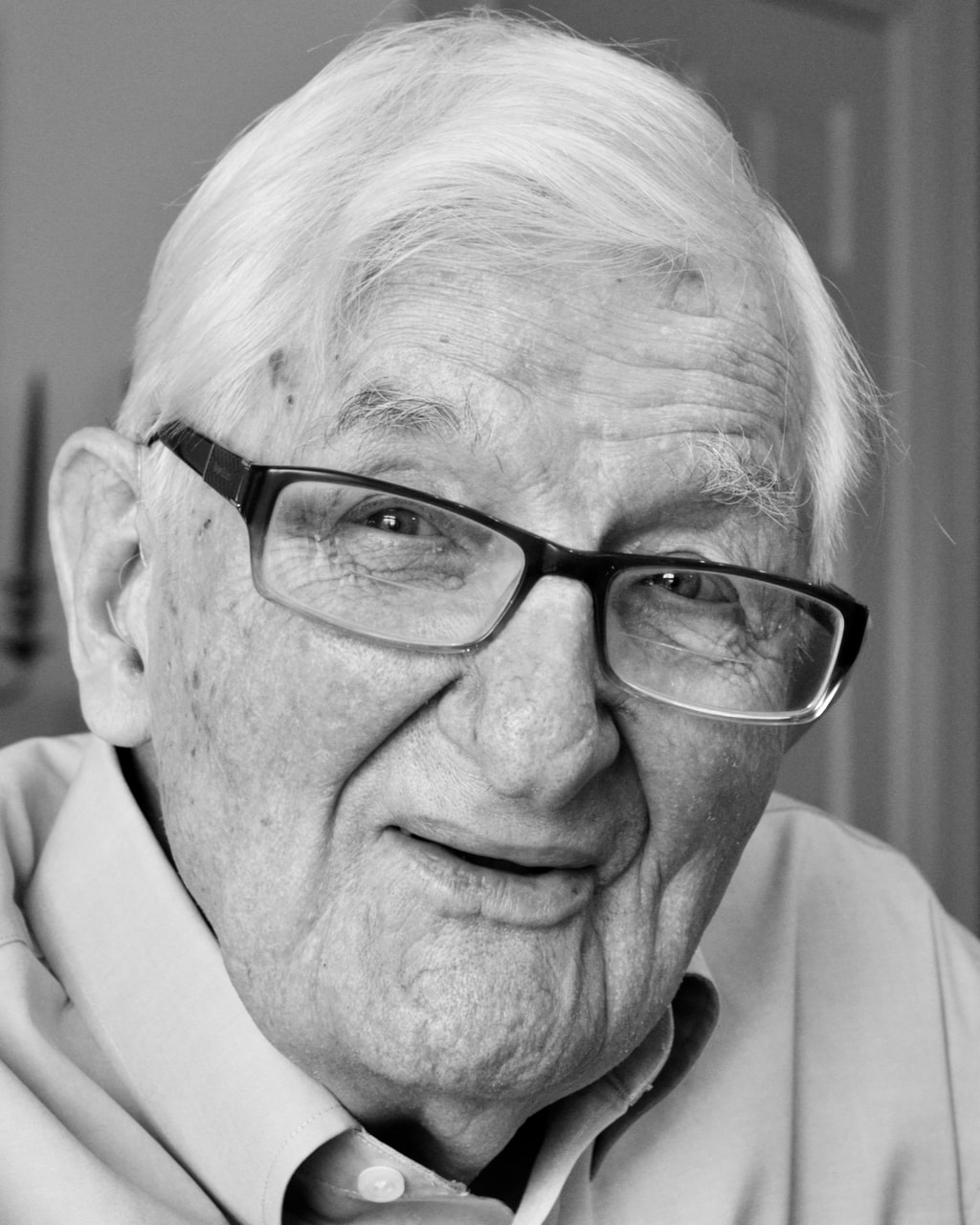LT Jack Hughes
US Navy Marine Medical Corps.
LST 497 D-Day '44-'47
US Navy Marine Medical Corps.
LST 497 D-Day '44-'47
Jack Hughes was born on November 24, 1919. I met him 5 days short of his 100th birthday. Jack was born in Tabor City North Carolina right near the coast and the South Carolina boarder. The town had 700 people living there when Jack was growing up. "I knew everybody in the town and they knew me. When I misbehaved, my mother knew about before I got home". Jack grew up during the Depression. "We didn’t have a lot, but we had as much as anyone else". In those days you raised your food including some chickens”. His father had a sawmill and made wooden shipping cartons for produce. His father died when he was 13 but the insurance paid for college for Jack and his 2 brothers and 2 sisters.
Jack went off to UNC in Chapel Hill when he was 15 and then went on to medical school at the University of Pennsylvania. 9 months after graduation and completion of his internship, he enlisted on January 24th, 1944. He was sent to Lido Beach on Long Island in New York for training and then on to England for additional training for the invasion of Normandy. Jack was a medic on LST 497. They left under cover of darkness and Jack said he didn’t sleep much that night and he woke up at first light. “I saw the most amazing thing that I will never forget, as far as I could see in every direction, there were ships of all shapes and sizes and planes flying overhead. I never expected that". When we left England, they were told, “you won't have any problems on the beach. The Air Force will knock that all out."
At 8 am the invasion started and Jack's LST was filled with 155mm howitzers and a field hospital with 20 Army doctors from the 29th Division and was second in line for the landing. His ship was headed for the Fox Red sector of Omaha Beach east of Point du Hoc. The LST in front of them took a direct hit and couldn't open its doors. His ship was ordered to pullback
"because the area was too hot". They moved back at flank speed and dropped anchor between two heavy cruisers; the Tuscaloosa and the Augusta. From there they could see all of the action on the beach unfolding in front of them.
Once it was dark, they moved in close to the shore to pick up casualties. Because of rough seas the wounded were brought out to them. The weather was bad, and the waves were 8 to 10 feet high. It was very difficult to get the wounded on board. Everyone was seasick "and we were throwing up everything but our toenails". Eventually they got the wounded on board. The crew gave up their bunks for the wounded. During the next 24 hours they had to ride out the worst channel storm in 50 years. On D+3 they were able to land the ship and unload. They then headed to Southampton with wounded including 9 Army Rangers, injured at Point du Hoc.
Over the next several months Jack believes he crossed the English Channel over 50 times hauling troops and supplies. On one crossing Jack heard two German planes fly overhead and they dropped their bombs but missed his LST. On December 26th, 1944 Jack received 2 weeks of vacation in NYC where he was put up at the Waldorf Astoria with several other Navy pals. From there he was sent to Parris Island where he was a medic serving the Marines until his discharge in September 1947.
One of Jack's most vivid memories was 6 weeks after D-Day. A soldier came to see him complaining of an upset stomach. "You were out with the guys last night?" “Yes, but I had only one beer” the sailor replied. Jack told him, "you go hit your bunk and come see me in 5 to 6 hours. The man came back with a fever and an elevated blood count. Jack and his corpsman are now concerned it could be appendicitis. However, they have limited surgical tools and no retractors. They went down to the mess area and found a couple of ladles and a couple of forks and headed for the machinist’s shop. They fashioned some retractors and some skin hooks and sterilized them. They had no anesthesia, but Jack knew how to give a spinal block and they had some Novocain. They put the soldier up on the table and started the operation. They got the appendix out just in time but while they were closing, the nonvaccine began to wear off. They started administering small packets of morphine and Novocain and were able to finish before the pain became too much.
After his discharge Jack resumed his medical career and specialized in Urology and eventually went into practice in Durham, NC in 1950. I asked Jack to tell me about his most memorable moment in his medical career. He said there were so many. He thought for a moment and then told me the story of having to go into the hospital late one night to care for a lady with severe internal injuries from car accident. When he was done caring for the woman, he decided that it just wasn’t fun anymore and he "hung it up".
Jack was married and had 6 children. His wife died of ovarian cancer. In 2000 Jack married his current wife Scott and between them they have 9 children and 15 grandchildren. These days Jack belongs to his men's club for guys over 90. It's called the ROMEO Club...Really Old Men Eating Out. Jack said to me multiple times during our visit, looking back over his life, "I've had it good".
I asked him if, when he was standing on his LST anchored 1,000 yards off Omaha Beach on D-Day watching the action unfold, if at any point he thought we (USA) wouldn't get off the beach. He immediately answered, "No. It never occurred to us. We knew we couldn't fail or we would all end up as German slaves".
Jack went off to UNC in Chapel Hill when he was 15 and then went on to medical school at the University of Pennsylvania. 9 months after graduation and completion of his internship, he enlisted on January 24th, 1944. He was sent to Lido Beach on Long Island in New York for training and then on to England for additional training for the invasion of Normandy. Jack was a medic on LST 497. They left under cover of darkness and Jack said he didn’t sleep much that night and he woke up at first light. “I saw the most amazing thing that I will never forget, as far as I could see in every direction, there were ships of all shapes and sizes and planes flying overhead. I never expected that". When we left England, they were told, “you won't have any problems on the beach. The Air Force will knock that all out."
At 8 am the invasion started and Jack's LST was filled with 155mm howitzers and a field hospital with 20 Army doctors from the 29th Division and was second in line for the landing. His ship was headed for the Fox Red sector of Omaha Beach east of Point du Hoc. The LST in front of them took a direct hit and couldn't open its doors. His ship was ordered to pullback
"because the area was too hot". They moved back at flank speed and dropped anchor between two heavy cruisers; the Tuscaloosa and the Augusta. From there they could see all of the action on the beach unfolding in front of them.
Once it was dark, they moved in close to the shore to pick up casualties. Because of rough seas the wounded were brought out to them. The weather was bad, and the waves were 8 to 10 feet high. It was very difficult to get the wounded on board. Everyone was seasick "and we were throwing up everything but our toenails". Eventually they got the wounded on board. The crew gave up their bunks for the wounded. During the next 24 hours they had to ride out the worst channel storm in 50 years. On D+3 they were able to land the ship and unload. They then headed to Southampton with wounded including 9 Army Rangers, injured at Point du Hoc.
Over the next several months Jack believes he crossed the English Channel over 50 times hauling troops and supplies. On one crossing Jack heard two German planes fly overhead and they dropped their bombs but missed his LST. On December 26th, 1944 Jack received 2 weeks of vacation in NYC where he was put up at the Waldorf Astoria with several other Navy pals. From there he was sent to Parris Island where he was a medic serving the Marines until his discharge in September 1947.
One of Jack's most vivid memories was 6 weeks after D-Day. A soldier came to see him complaining of an upset stomach. "You were out with the guys last night?" “Yes, but I had only one beer” the sailor replied. Jack told him, "you go hit your bunk and come see me in 5 to 6 hours. The man came back with a fever and an elevated blood count. Jack and his corpsman are now concerned it could be appendicitis. However, they have limited surgical tools and no retractors. They went down to the mess area and found a couple of ladles and a couple of forks and headed for the machinist’s shop. They fashioned some retractors and some skin hooks and sterilized them. They had no anesthesia, but Jack knew how to give a spinal block and they had some Novocain. They put the soldier up on the table and started the operation. They got the appendix out just in time but while they were closing, the nonvaccine began to wear off. They started administering small packets of morphine and Novocain and were able to finish before the pain became too much.
After his discharge Jack resumed his medical career and specialized in Urology and eventually went into practice in Durham, NC in 1950. I asked Jack to tell me about his most memorable moment in his medical career. He said there were so many. He thought for a moment and then told me the story of having to go into the hospital late one night to care for a lady with severe internal injuries from car accident. When he was done caring for the woman, he decided that it just wasn’t fun anymore and he "hung it up".
Jack was married and had 6 children. His wife died of ovarian cancer. In 2000 Jack married his current wife Scott and between them they have 9 children and 15 grandchildren. These days Jack belongs to his men's club for guys over 90. It's called the ROMEO Club...Really Old Men Eating Out. Jack said to me multiple times during our visit, looking back over his life, "I've had it good".
I asked him if, when he was standing on his LST anchored 1,000 yards off Omaha Beach on D-Day watching the action unfold, if at any point he thought we (USA) wouldn't get off the beach. He immediately answered, "No. It never occurred to us. We knew we couldn't fail or we would all end up as German slaves".

